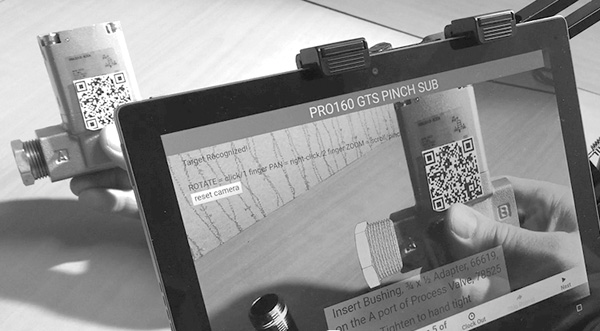OPS21 GIVES MANUFACTURERS A COMPETITIVE ADVANTAGE
BY MICHAEL DEVIGNE
Manufacturers in New York City face enormous obstacles. Locally, they contend with real estate pressures and escalating lease rates, high taxes and burdensome regulations. Macroeconomic forces, including the lure of cheap overseas labor and possible tariff-induced supply chain disruptions are omnipresent.
But there are some new tools available to help manufacturers remain competitive in an exceedingly challenging and complicated economy.
Ops21 is a multifaceted program designed to help NYC manufacturers learn about and adopt advanced technologies, specifically, advanced materials, robotics, and digital manufacturing. As part of the NYC Futureworks initiative, Ops21 aims to help manufacturers embrace advanced technologies and increase local production.
 The program, which is jointly managed by the Industrial Technology Assistance Corporation (ITAC) and the city’s Economic Development Corporation (NYCEDC), is providing workshops led by technical experts from Cornell University, NYU Tandon School of Engineering, and the Rochester Institute of Technology.
The program, which is jointly managed by the Industrial Technology Assistance Corporation (ITAC) and the city’s Economic Development Corporation (NYCEDC), is providing workshops led by technical experts from Cornell University, NYU Tandon School of Engineering, and the Rochester Institute of Technology.
EWI, a premier engineering and technology organization, will also lead a deep dive assessment to help a manufacturer develop a detailed technology roadmap.
Earlier this year the Maspeth Industrial Business Association (MIBA), a project of the Business Outreach Center Network (BOC), and other partner organizations surveyed over 150 manufacturing businesses city-wide.
Based on feedback, Ops21 workshops have been specifically designed to help businesses identify technologies that will best enable them to optimize operations and increase competitiveness. The program is hosting 24 free workshops for manufacturers between June and October of this year.
Through our outreach we helped manufacturers understand how advanced technologies could be relevant to their operations. Many food producers, for example, were unaware that advanced materials could be used to transform food sources into products with novel effects, including longer shelf life, enhanced flavor, and greater nutritional value.
We informed craft producers about how additive manufacturing (3D printing) could enhance rather than substitute or replace traditional production techniques while also offering additional possibilities for customization.
What has recently been dubbed “the digital handmade” is a concept that some of the most innovative furniture designers are beginning to employ in their own studios.
Though armed with new knowledge and techniques, city manufacturers may still have difficulty implementing advanced manufacturing capabilities. In this pursuit, though, manufacturers can apply for a Workforce Development Institute (WDI) Grant to help fund the expenses with adopting these new technologies.
The grant is generally $2,000 to $20,000, and is awarded in instances when a business project or initiative is expected to result in job creation or increase worker skills. WDI also considers if the project or initiative makes the business more competitive, or can be defined as a unique opportunity for that business.
Manufacturers should also consider leveraging the Customized Training Grant. NYC Small Business Services will cover up to 70 percent of the cost ($400,000 maximum) to help businesses invest in their employees. For manufacturers looking to train employees on new equipment or software, the Customized Training Grant could be a crucial source of funding.
Ops21 workshops will raise awareness about advanced manufacturing technologies and its relevance to NYC businesses. But knowledge is only the first step. As manufacturers integrate these new technologies into their operations employee training will become critical.
MIBA and BOC Network can help manufacturing businesses navigate financing options and grant opportunities that will help them remain competitive and grow.
For more information about upcoming Ops21 workshops, click here. To learn more about applying for WDI or Customized Training Grants, email mdevigne@bocnet.org.
 Michael Devigne is an Industrial Business Account Manager for the Business Outreach Center Network (BOCNET), and a Coordinator for the Maspeth Industrial Business Association (MIBA).
Michael Devigne is an Industrial Business Account Manager for the Business Outreach Center Network (BOCNET), and a Coordinator for the Maspeth Industrial Business Association (MIBA).



